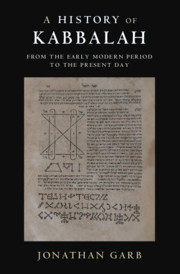Book contents
- A History of Kabbalah
- A History of Kabbalah
- Copyright page
- Dedication
- Contents
- Figures
- Acknowledgments
- Introduction
- 1 Premodern and Modern Kabbalah
- 2 The Safedian Revolution of the Sixteenth Century
- 3 The Kabbalistic Crisis of the Seventeenth Century
- 4 Canonization
- 5 Beginnings of Globalization
- 6 Destruction and Triumph
- 7 Recurrent Themes
- Appendix Timeline
- Glossary
- Bibliography
- Index
7 - Recurrent Themes
Gender, Messianism and Experience?
Published online by Cambridge University Press: 02 July 2020
- A History of Kabbalah
- A History of Kabbalah
- Copyright page
- Dedication
- Contents
- Figures
- Acknowledgments
- Introduction
- 1 Premodern and Modern Kabbalah
- 2 The Safedian Revolution of the Sixteenth Century
- 3 The Kabbalistic Crisis of the Seventeenth Century
- 4 Canonization
- 5 Beginnings of Globalization
- 6 Destruction and Triumph
- 7 Recurrent Themes
- Appendix Timeline
- Glossary
- Bibliography
- Index
Summary
This chapter traces recurring topics of the entire modern period and its academic treatment, summarizing the differences between subperiods, briefly pointing at domains for further research, and outlining current scholarly trends. Modern Kabbalah has consistently returned to the Lurianic corpus and to the general themes of gender, messianism and experience. It canbe divided into three phases: early, high and late modernity. A crisis of authority posed by Sabbateanism and blended with a more general religious crisis distinguishes the early modern period. This was in turn resolved through the high modern canons of the eighteenth century, an era of stabilization and proliferation of Kabbalah. The rapprochement between Kabbalah and philosophy characterizes the late modern period, along with its messianism, modernism and globalization. Possible areas for future research include a survey of the commentaries on Luria, a treatment of the modern kabbalistic exegesis of a handful of earlier binding sources and a discussion on the role of technology — both in the facilitating and propagation of Kabbalah, and as a theme in kabbalistic discourse.
Keywords
- Type
- Chapter
- Information
- A History of KabbalahFrom the Early Modern Period to the Present Day, pp. 240 - 254Publisher: Cambridge University PressPrint publication year: 2020

